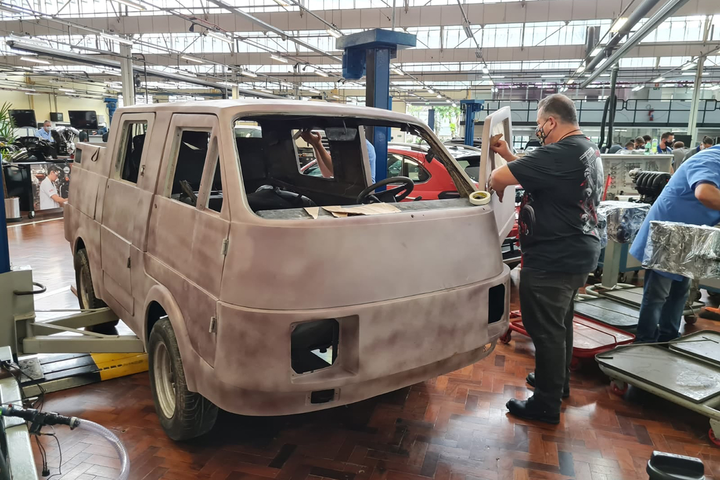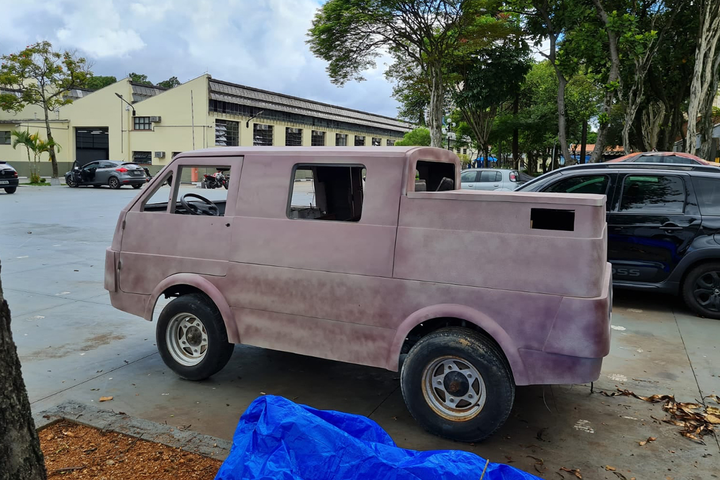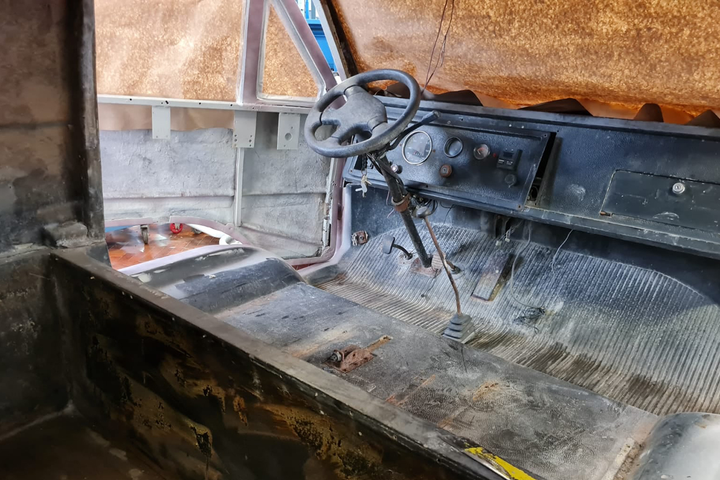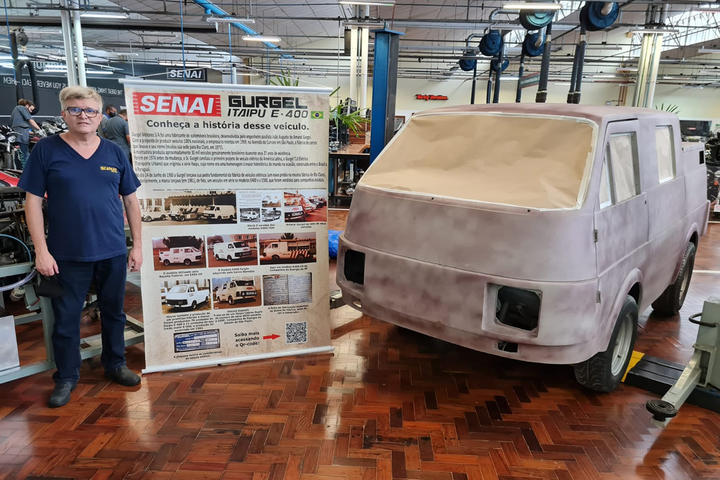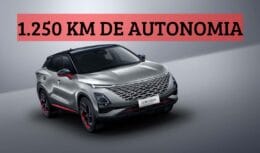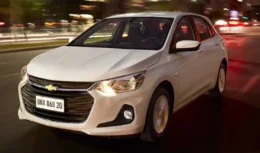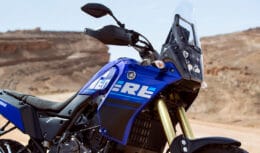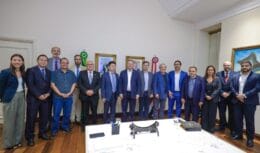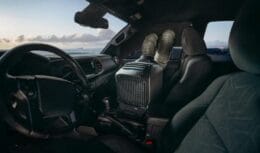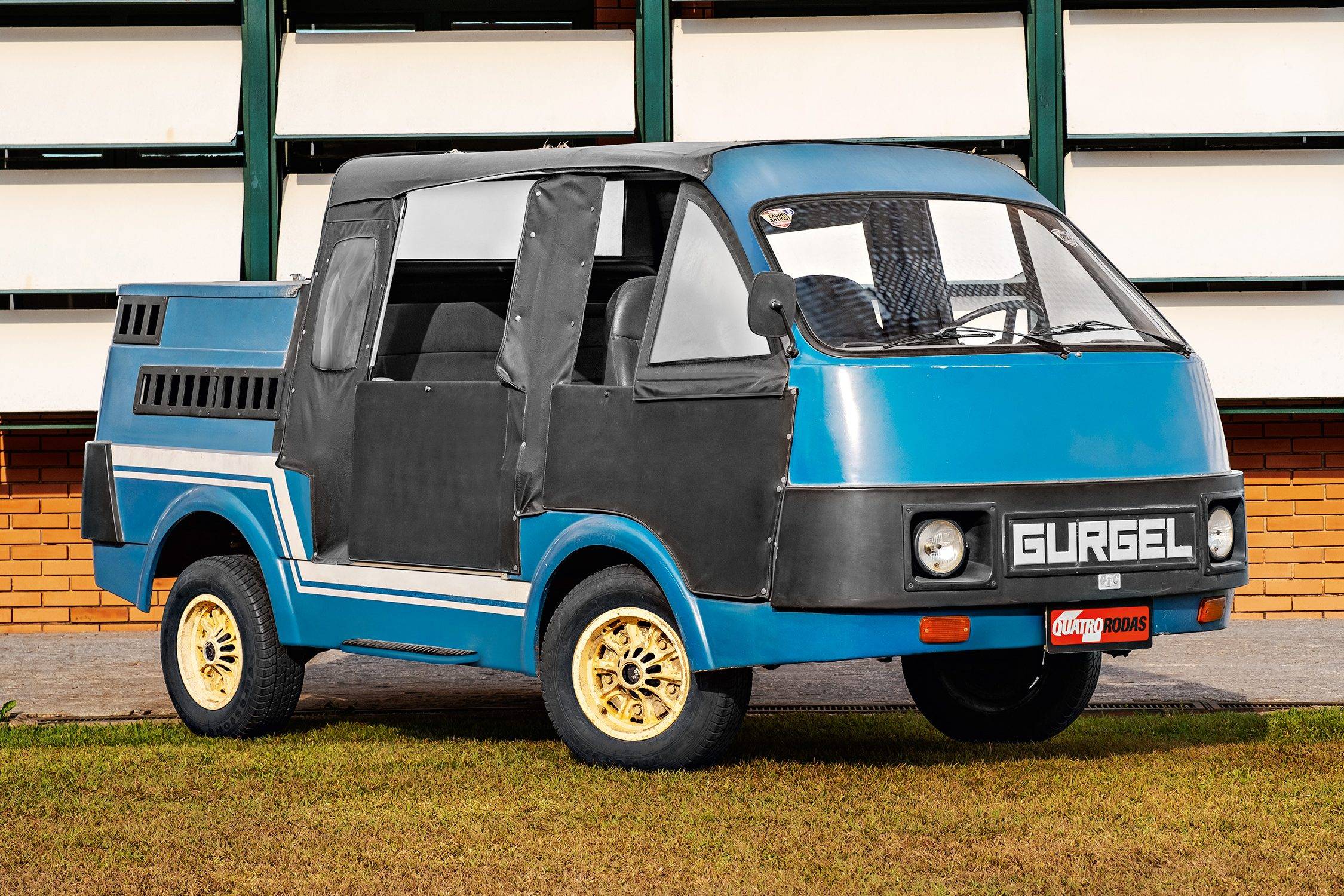
Former Volkswagen engineer, specialist in electric vehicles, is modernizing the first Brazilian electric car, the Gurgel Itaipu E-400, for his TCC project
Long before the arrival of the electric vehicle race, which gained more strength in this decade, the Brazilian factory Gurgel Motores, located in Rio Claro (SP), was already trying to innovate in the Brazilian automotive industry. First, with the prototype of the Itaipu electric minicar, in 1974, which could carry two people, but which was never mass-produced. Soon after, with the Gurgel Itaipu E-400, between 1981 and 1982, becoming the first Brazilian electric car.
Read also
First Brazilian electric car becomes TCC project
Gurgel Itaipu E-400 being remodeled in SENAI's TCC project – photo: Reproduction/Mobiauto Gurgel Itaipu E-400 being remodeled in SENAI's TCC project – photo: Reproduction/Mobiauto Gurgel Itaipu E-400 being remodeled in SENAI's TCC project – photo: Reproduction/Mobiauto Former VW group engineer will work on improving the first Brazilian electric car – photo: Reproduction/Mobiauto
The curious part is that, after 40 years, the Gurgel Itaipu E-400 became a Course Completion Work (TCC) project for the electric and hybrid vehicle course at Senai Conde José Vicente de Azevedo, located in the Ipiranga neighborhood, in Sao Paulo.
The project for the first Brazilian electric car was developed by the course group and by Val Arrais, an engineer specialized in electric and hybrid vehicles who worked on Volkswagen projects for three decades. According to the engineer who worked at Volkswagen, it all started when the Brazilian electric car was announced in a group of old cars.
Acquiring more information about the first Brazilian electric car, he discovered that it had been idle for about 20 years. Therefore, the former Volkswagen engineer decided to get to know the model, negotiated with the former owner, and ran after all the documentation for the transfer. With everything right, the specialist in electric vehicles created a project to present to Senai. The intention was to modernize the drivetrain so that the Gurgel Itaipu E-400 could circulate and leave the garage.
According to him, it all started when the vehicle was announced in a group of vintage cars. “I've always been an anti-mobilist, I have other models and the opportunity arose to buy this Gurgel Itaipu E-400”, says the founder.
Gurgel Itaipu E-400 gets new electric motor and batteries
All original engine and battery bank parts will be replaced with new and updated components. Therefore, in addition to being equipped with a new engine and a more modern battery, the electric car will have greater autonomy and power to be used on a daily basis.
Senai agreed with the idea of restoring the Gurgel Itaipu E-400 under these conditions, and work began. The first step was to take the model to the school and plan the phases of the TCC, creating a work execution schedule.
The former Volkswagen engineer's project is still in its infancy and will take about 6 months to be fully ready, which is the time to complete the course.
Engineer has worked on other innovative projects
In addition to engine and battery changes, the Brazilian electric car will have updated steering, disc brakes, among others. According to the Volkswagen engineer, he never stopped to calculate everything.
However, he explains that, in other projects he carried out, the batteries alone cost around R$ 60. This is not the first time that Arrais has worked on projects like this after leaving Volkswagen.
The specialist has already created two electric cars alongside the Moura, which were even presented at the Latin American Electric Mobility Exhibition in SP, at the end of last year.

